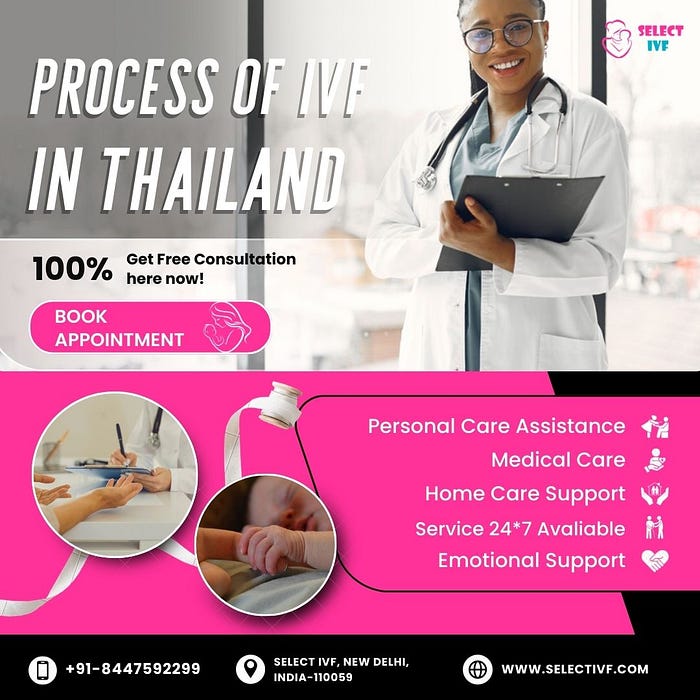Thailand has become a preferred destination for couples seeking In Vitro Fertilization (IVF) due to its advanced medical facilities, skilled specialists, and cost-effective treatments. The process of IVF in Thailand is designed to provide hopeful parents with the highest chances of success while ensuring their comfort and peace of mind. This article outlines the key steps involved in the IVF process in Thailand and highlights why this country is a top choice for fertility treatments.
Initial Consultation and Evaluation
The journey begins with an initial consultation, where the couple meets with a fertility specialist to discuss their medical history, fertility challenges, and treatment options. This step involves a thorough evaluation, including blood tests, ultrasounds, and sometimes genetic screening. The goal is to understand the root cause of infertility and tailor the IVF treatment to the couple’s specific needs.
Ovarian Stimulation
Once the evaluation is complete, the process of ovarian stimulation begins. This involves administering hormone injections to the female partner to stimulate the ovaries to produce multiple eggs. The fertility specialist closely monitors the patient through regular ultrasounds and blood tests to ensure that the ovaries respond well to the stimulation. This phase usually lasts about 10 to 14 days.
Egg Retrieval
When the eggs have matured, they are ready for retrieval. The egg retrieval process is a minor surgical procedure performed under sedation. Using ultrasound guidance, the fertility specialist inserts a thin needle through the vaginal wall to reach the ovaries and retrieve the eggs. The procedure is relatively quick, and the patient can usually go home the same day.

Sperm Collection and Fertilization
On the day of egg retrieval, a sperm sample is collected from the male partner or a donor. The collected eggs and sperm are then combined in a laboratory setting to facilitate fertilization. In some cases, Intracytoplasmic Sperm Injection (ICSI) may be used, where a single sperm is directly injected into an egg to increase the chances of fertilization.
Contact Us: For personalized guidance on the process of IVF in Thailand, reach out to Select IVF. Contact Us: +91–8447592299 Email us: info@selectivf.com.
Embryo Development and Transfer
Once fertilization occurs, the resulting embryos are cultured in the lab for several days. The embryos are monitored for quality, and the best one or two are selected for transfer to the woman’s uterus. The embryo transfer is a simple and painless procedure, similar to a Pap smear. The remaining healthy embryos can be frozen for future use.
Pregnancy Test and Follow-Up
About 10 to 14 days after the embryo transfer, a blood test is conducted to check for pregnancy. If the test is positive, the fertility clinic will continue to monitor the pregnancy through regular check-ups and ultrasounds. In the case of a negative result, the couple can discuss their options for future attempts or alternative treatments with the specialist.
Why Choose Thailand for IVF?
The process of IVF in Thailand is renowned for its high success rates, cutting-edge technology, and patient-centered care. The country offers a supportive environment for couples undergoing fertility treatment, with experienced professionals dedicated to helping them achieve their dream of parenthood.
Contact Us: For more information about the IVF process in Thailand and to explore your options, connect with us at Select IVF. Contact Us: +91–8447592299 Email us: info@selectivf.com. Let us guide you through every step of your IVF journey in Thailand, ensuring you receive the best possible care and support.
No comments:
Post a Comment